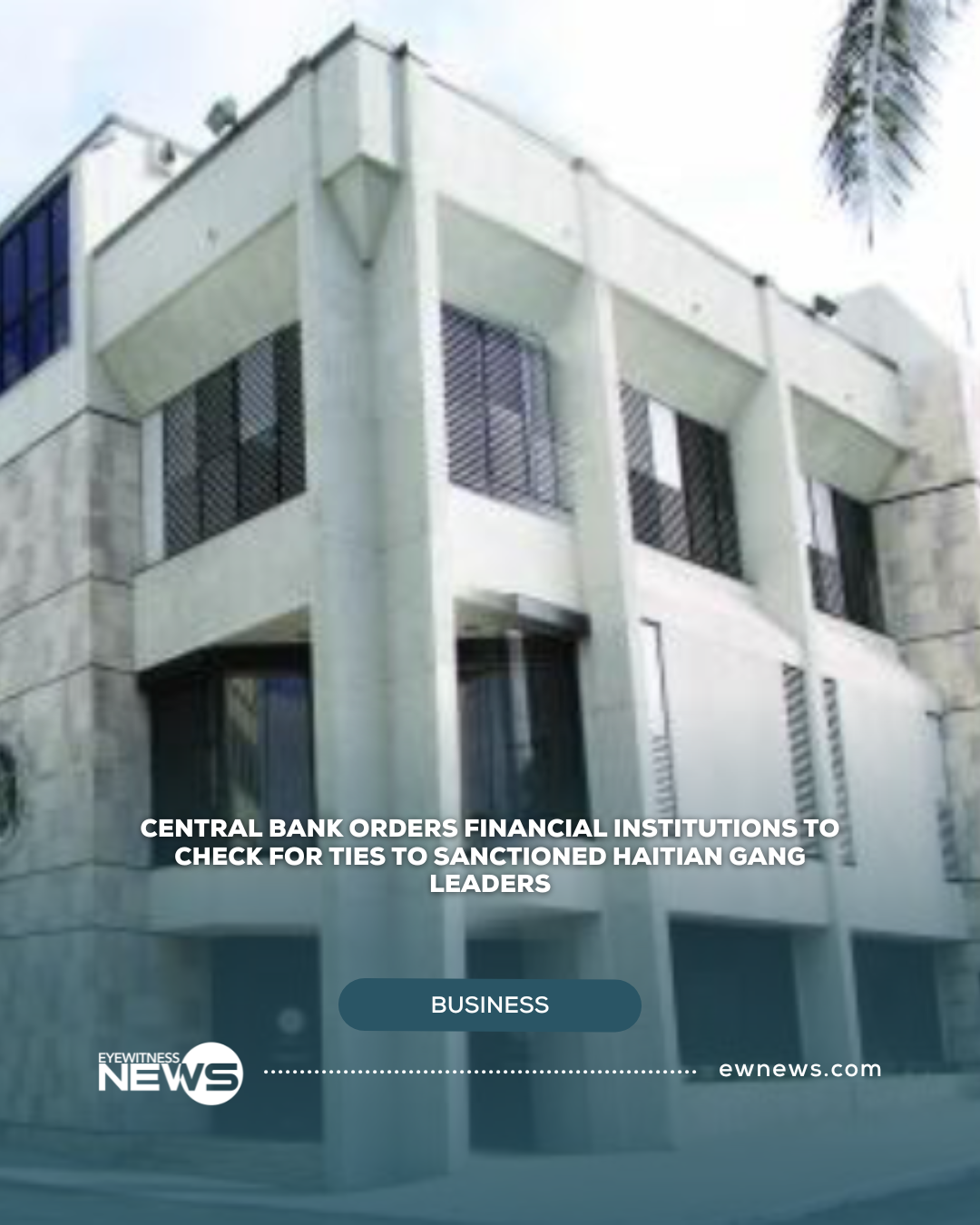NASSAU, BAHAMAS- The Central Bank of The Bahamas has directed all licensed financial institutions in the country to urgently review their client records for possible links to several Haitian gang leaders currently under United Nations Security Council sanctions.
The move follows a formal notice and directive issued by the Office of the Attorney General and is being enforced by the Central Bank under the International Obligations (Economic & Ancillary Measures) Amendment Act, 2019. The Central Bank has classified the review as a matter of high priority.
The move is part of The Bahamas’ compliance with UN Security Council Resolution 2653 (2022), which authorises targeted sanctions against individuals and entities destabilising Haiti. Financial institutions must determine whether they hold funds or assets—directly or indirectly—tied to any of the named individuals or their proxies. Attorney General Ryan Pinder told Eyewitness News: “This is a notice pursuant to the UN Security Council resolution on the violence in Haiti and the corresponding UN sanctions list that has been issued. We are ensuring compliance under our obligations with the UN on sanctioned persons.”
Institutions are required to report both positive and negative findings to the Central Bank. Any positive matches must also be reported immediately to the Financial Intelligence Unit and the Office of the Attorney General.
The individuals identified in the directive include Jimmy “Barbecue” Chérizier, leader of the G9 Family and Allies gang federation and believed to be one of Haiti’s most powerful warlords; Andre “Izo” Johnson, head of the 5 Segond gang, accused of rape, kidnapping, and drug trafficking; Wilson “Lanmo San Jou” Joseph, leader of the 400 Mawozo gang, linked to the 2021 kidnapping of 17 foreign missionaries and other human rights violations; Vitel’Homme Innocent, wanted by the FBI and added to its Ten Most Wanted list in 2023 for his role in the same missionary kidnapping; Victor Prophane, a former Haitian parliamentarian and customs official accused of trafficking arms and financing gang violence; Luckson Elan, leader of the Gran Grif gang in Artibonite, reportedly responsible for mass kidnappings and severe human rights abuses; and Renel “Ti Lapli” Destina, head of the Grand Ravine gang and ally of Izo, known for widespread criminal activities, including truck hijackings, rape, and attacks on law enforcement.
The United Nations sanctions committee has attributed widespread violence, sexual crimes, arms trafficking, and disruption of humanitarian aid in Haiti to these individuals and the gangs they lead.
UN Security Council Resolution 2653 (2022) established a sanctions regime targeting individuals and entities involved in or supporting criminal gangs in Haiti. Sanctions include asset freezes, travel bans, and arms embargoes. The Sanctions List is regularly updated by the UN Panel of Experts on Haiti, which monitors compliance and reports violations to the Security Council.






